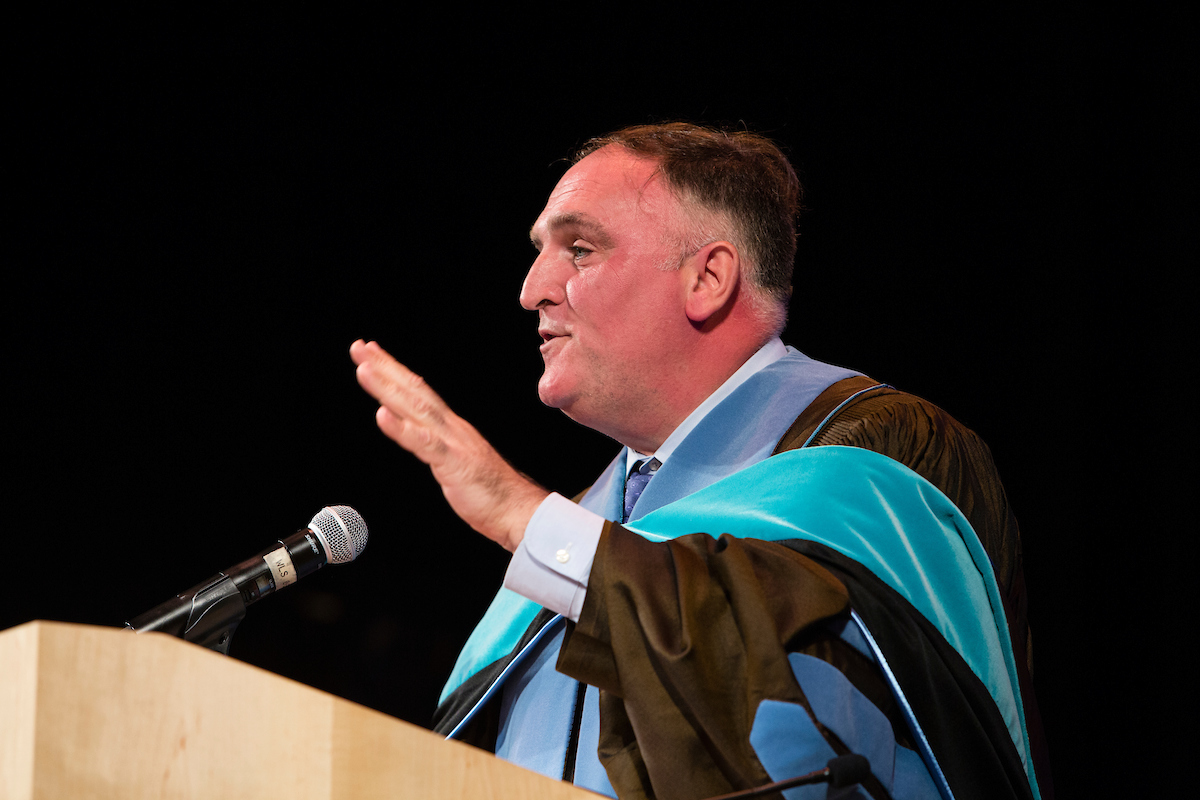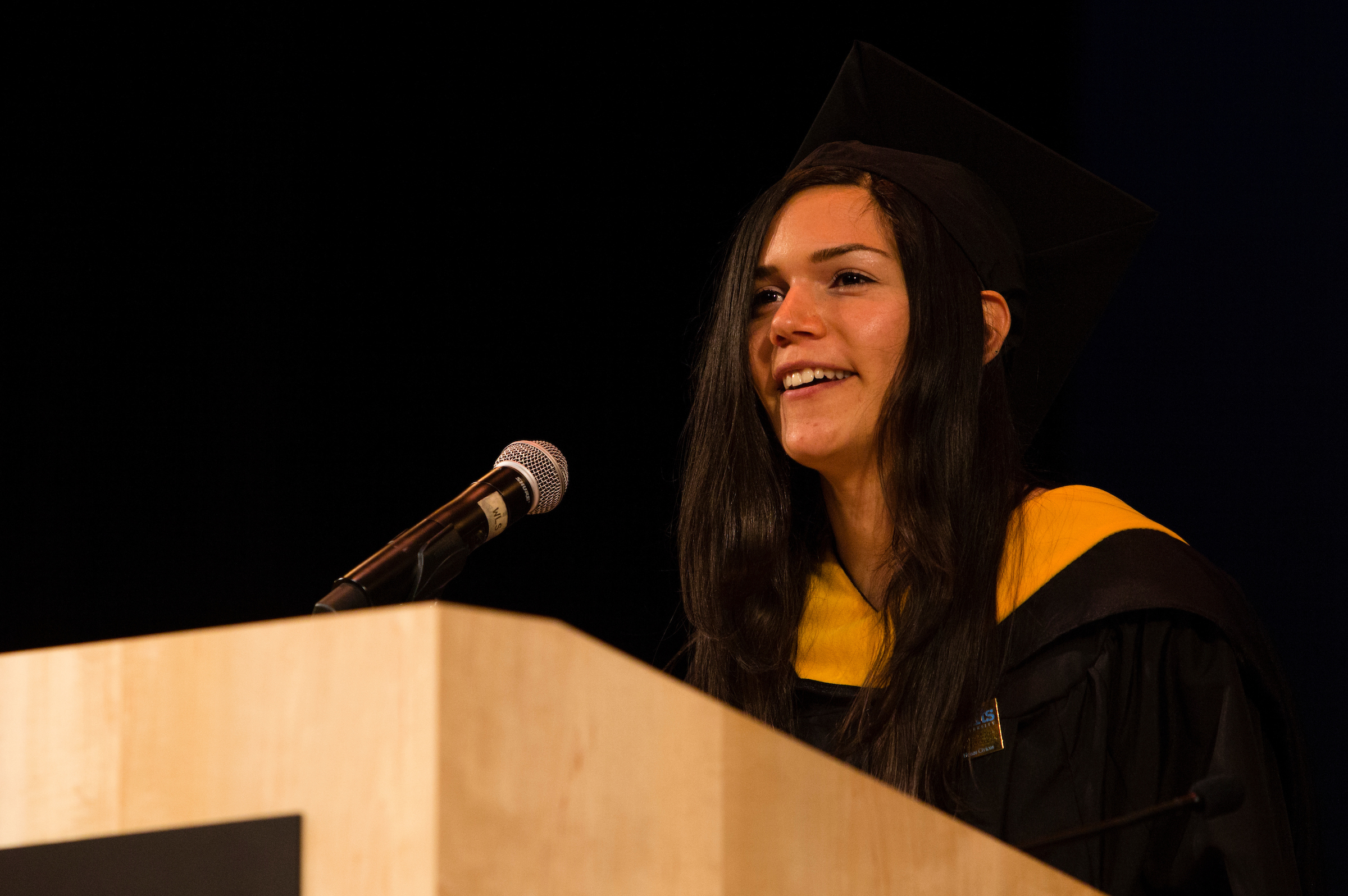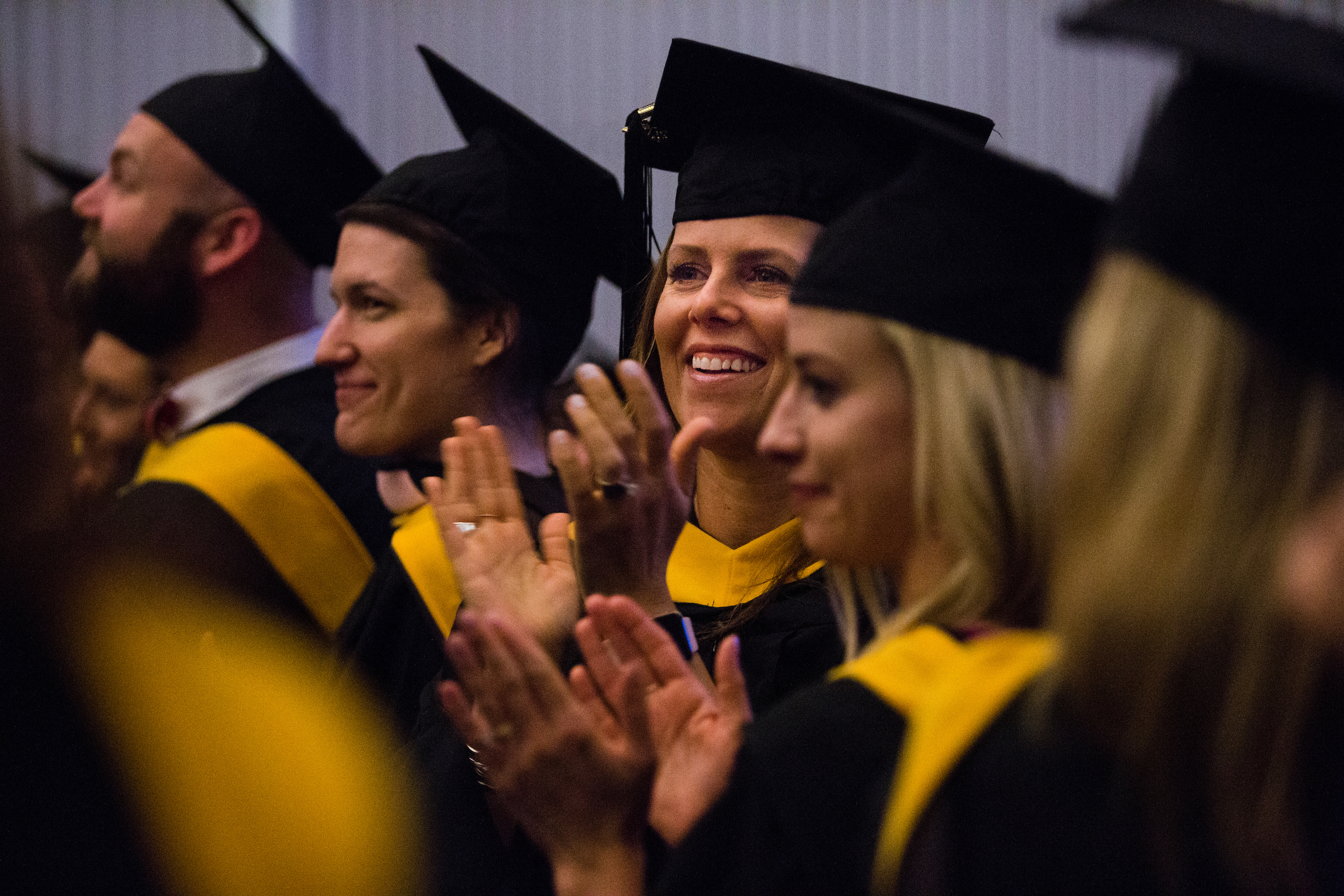The Class of 2018 Speaks
By Laura Ferguson for Tufts Now
At commencement 2018, a renowned chef and humanitarian shared his menu for a better world and a student shared her vision for tackling the world's challenges as a community.
José Andrés is the only chef in the world with both a two-star Michelin restaurant and four Bib Gourmands. Yet he has done far more than popularize tapas. Five days after Hurricane Maria hit Puerto Rico in 2017, he was there. What started with 20 friends in one San Juan kitchen grew to more than 20,000 volunteers in 23 kitchens. They turned out 150,000 meals a day, totaling more than 3.3 million meals.

“We didn’t meet, we didn’t plan, we only did what we know—we started cooking,” he told the 119 graduates at the 37th commencement of the Friedman School of Nutrition Science and Policy, held at Cohen Auditorium on the Medford/Somerville campus. Andrés, who received an Honorary Doctor of Public Service at the university-wide commencement earlier in the day, spoke about his dual—often overlapping—roles as a chef and humanitarian.
“My mission and the mission of many has been to provide sustainable solutions to poverty through the eyes of a chef,” he said, describing some of the efforts to end hunger and strengthen economies by his nonprofit World Central Kitchen, which he started after witnessing the devastation of Haiti’s 2010 earthquake. He provided meals there as well, but also learned about the cycle of poverty, including the three billion people worldwide who cook over open fires or use charcoal or wood as fuel. He now advocates for clean cookstoves, which make less lung-damaging smoke and have fewer environmental impacts.
He described going to one Haitian village to personally test out a prototype backpack for carrying water. Not only was it less useful than the traditional ways the Haitians used (he got soaked to his underwear), “it didn’t begin to address the cause of the problem—no clean water nearby.” Soon, he said, the village will have an atmospheric water- collection system powered by the sun.
“To be young and inexperienced for many is a handicap,” he said. “But actually it can be your greatest asset. You’re not captive to the failed ideas of the past.”
“To be young and inexperienced for many is a handicap,” he said. “But actually it can be your greatest asset. You’re not captive to the failed ideas of the past.”
Chef (and Dr.) José Andrés
Andrés praised the class address, given by Alejandra Cabrera-Mondragon, N18, who likened the solving of nutrition problems to the native-American practice of planting corn, beans, and squash together. The corn provides a pole for the beans to climb, the beans fix nitrogen with their roots, and the squash leaves spread out to suppress weeds.
One of the best attributes of the Friedman School, she said, is that “we acknowledge that if we are going to attempt to solve the world’s most pressing issues related to food and nutrition, we are not going to do it alone. We need to reach across sectors, across cultures, across countries, and across what makes us uncomfortable. Because everyone has a role to play.”

"When you want something done right, you do it together"
Alejandra Cabrera-Mondragon, N18
